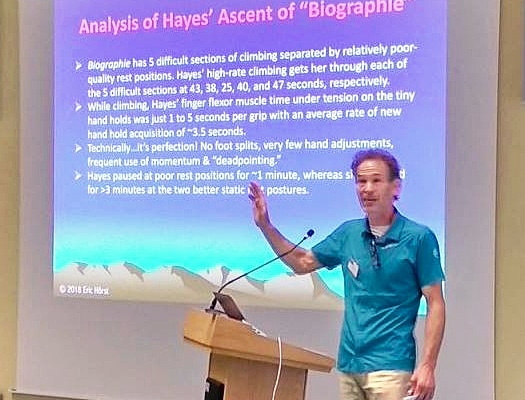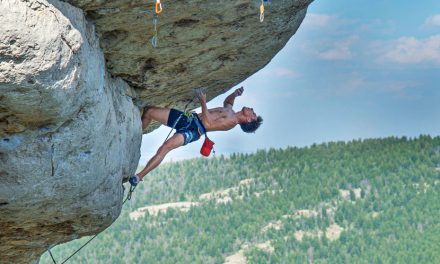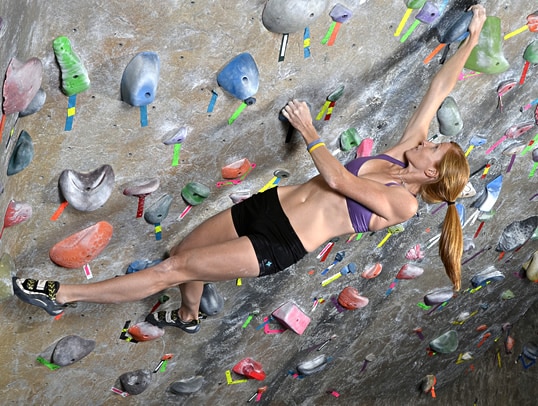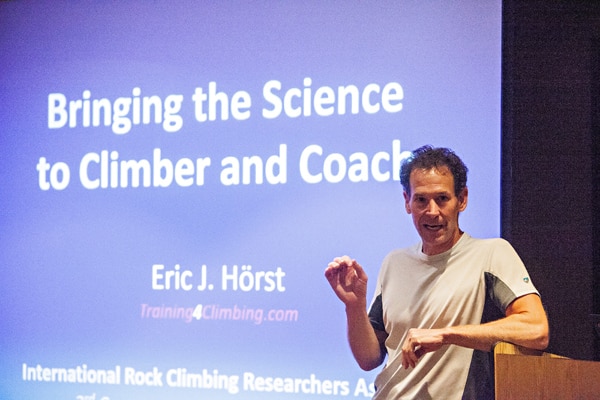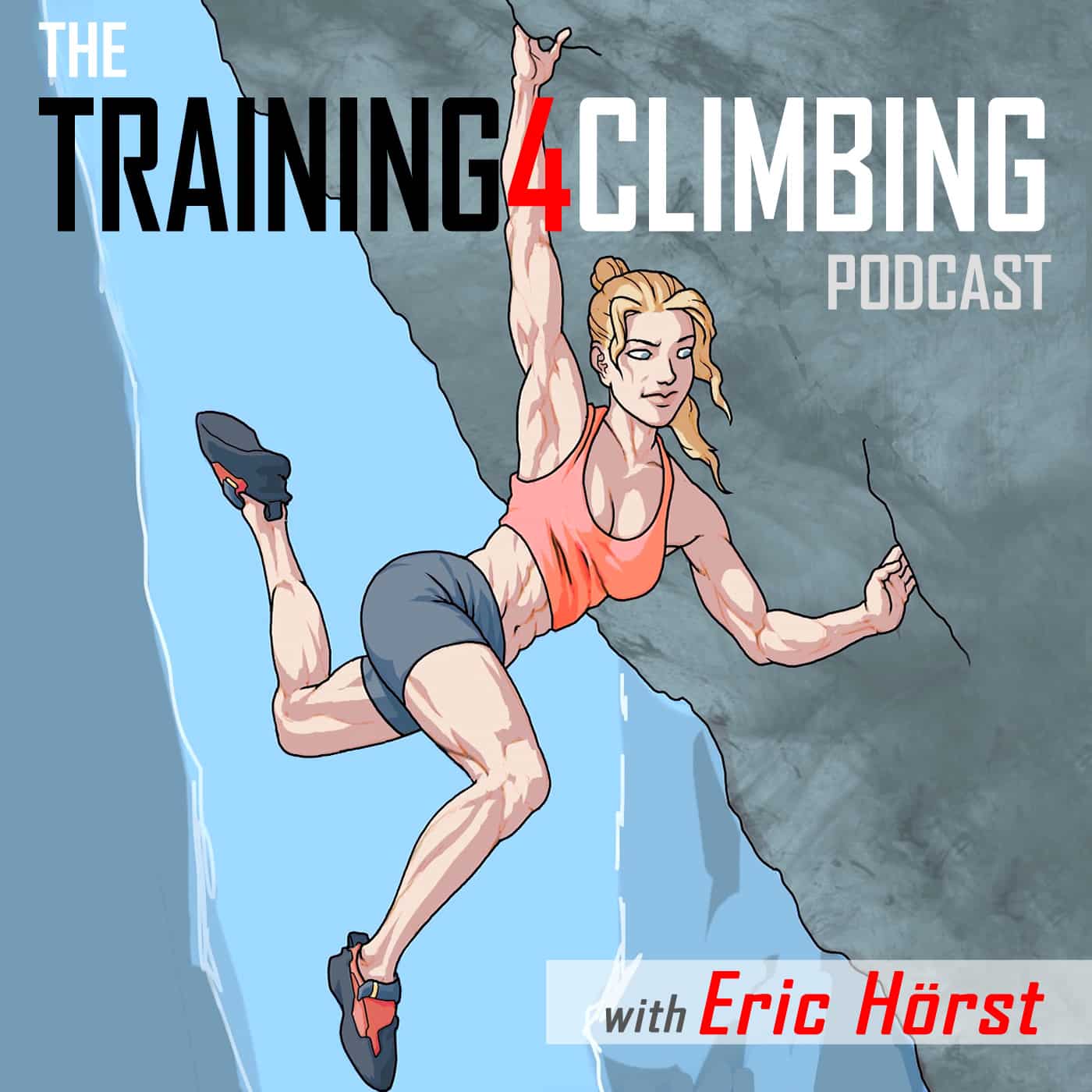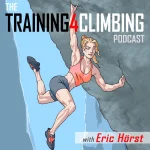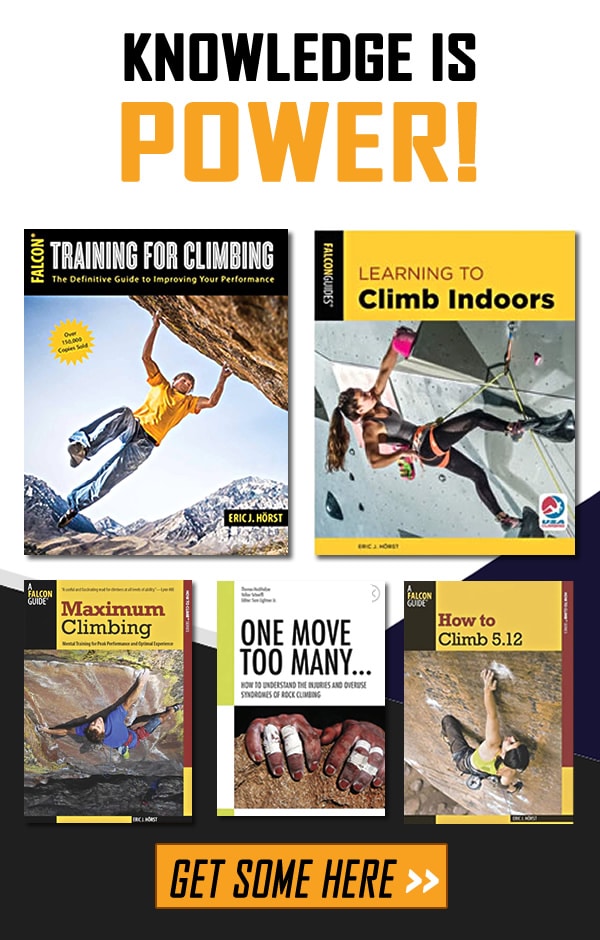In this podcast I share some climbing research highlights from this summer’s incredible 4th congress of the International Rock Climbing Researchers Association (IRCRA). Nearly 50 researchers presented their work on biomechanics, injury/medicine, exercise physiology, psychology, coaching, and more…spread over an exciting week in Chamonix, France. Listen in for details—and some practical training and performance applications—from six of my favorite presentations, plus my own keynote talk providing an analysis of Adam Ondra’s redpoint of Silence (the world’s first 5.15d/9c) and Margo Hayes’ FFA of Biographie (5.15a)!
Rundown
0:25 – Preview of this and upcoming podcasts.
5:55 – Overview of this summer’s International Rock Climbing Researchers Association 4th Congress in Chamonix, France.
10:40 – Research highlight #1: 3-D motion analysis of speed climbing performance, and interpretation of hip mechanical energy in official speed climbing route. (Lionel Reveret – France).
14:45 – Research highlight #2: Effect of climbing hold depth on biomechanical arm action during pull-ups. (Laurent Vigouroux – France)
22:55 – Research highlight #3: PIP joint contact incongruency in different grip positions as a trigger for epiphyseal fatigue fracture in adolescent climbers. (Andreas Schweizer – Switzerland)
31:20 – Research highlights #4 & 5: Association between different Rate of Force Development-measurements and climbing performance (Vegard Vereide – Norway). Also, the Rate of Force Development: a new biomechanical key factor in climbing (Guillaume Levernier – France).
40:45 – Research highlight #6: The effects of weighted dead-hang training program on grip strength and endurance in experienced climbers with different levels of strength. (Eva Lopez-Rivera – Spain)
52:52 – Research highlight #7: Qualitative analysis of two of 2017’s greatest ascents; and a proposed conceptual model for maximum-difficulty sport climbing and energy system requirements. (Eric Hörst – USA)
1:05:08 – The ultimate lesson from Hayes’ and Ondra’s ascents—climb quickly, accurately, and efficiently, and pause to rest only at effective rest positions. In short, the Hörst rule for lead climbing peak performance: Climb fast and rest well!
1:07:24 – My shout out to a few of the coaches bringing climbing science to their work as trainers!
Please Share the T4C Podcast!
Use the download and embed links in this player window to share this podcast on your social media or climbing blog. Thank you!
- To learn more about all things training, climbing, and performance…pick up a copy of the latest edition of the best-selling Training for Climbing!
Follow Eric on Twitter @Train4Climbing
Check out Eric’s YouTube channel.
Music by: Misty Murphy
Subscribe on iTunes (or other podcast player) to “Eric Hörst’s Training For Climbing” podcast. You can also listen to the T4C podcast on Spotify! Please write a review on iTunes!
Copyright © 2000–2018 Eric J. Hörst | All Rights Reserved.

